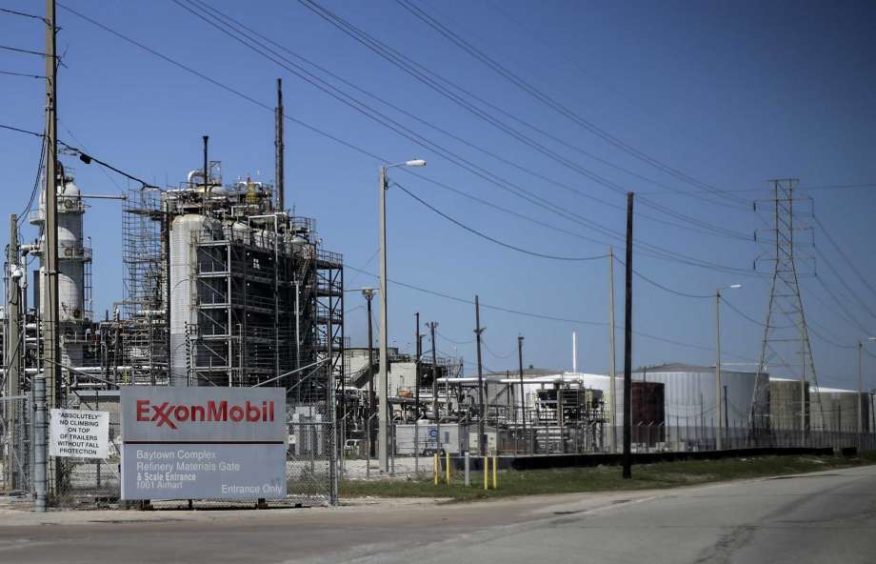
Exxon Mobil will pour $2 billion into expanding its Baytown chemical complex, creating 2,000 construction jobs and further cementing the region’s role as a petrochemical hub.
The Baytown expansion will allow Exxon to play off its rising oil and gas production in the Permian Basin to capture growing global demand for petrochemicals. Now it appears that at least a part of that increased gas production will go to 3,400-acre Baytown complex to be turned into chemicals that go into plastics.
The flood of natural gas — the feedstock for many chemicals and plastics — from the Permian and other Texas shale formations has driven the petrochemical boom along the Gulf Coast.
“Our Baytown chemical expansion will put us in a solid position to maximize the value of increased Permian Basin production and will deliver higher-demand, higher-value products produced at our Gulf Coast refining and chemical facilities,” said Darren W. Woods, ExxonMobil chairman and chief executive officer, in a statement. “Global demand for chemicals is expected to be greater than energy demand growth and GDP growth over the next 20 years.”
Petrochemicals – or chemicals made from oil and gas used in plastics, fertilizers, packaging, clothing, and thousands of consumer products – are quickly becoming one of the main drivers of global oil demand, surpassing cars, planes and trucks, according to a 2018 study by the International Energy Agency. The Paris-based international energy information agency estimates that petrochemical will account for more than a third of the growth in world oil demand by 2030, and nearly half the growth by 2050.
Exxon said Thursday the Baytown capital investment is on top of its $20 billion Growing the Gulf initiative announced in 2017 to expand its manufacturing and refinery presence on the Gulf Coast over the next decade. The oil major is also already building a huge $8 billion petrochemical complex near Corpus Christi in a joint venture with the Saudi Arabian petrochemical company SABIC.
The Baytown expansion will create 25 permanent jobs when the new units start up in 2022, a company spokesman said.
The project will add a 400,000-to-per-a-year polymers unit that will produce a type of plastic branded as Vistamaxx that the company says is more flexible, soft and elastic and allows everyday products to be made with less plastic.
Exxon will also be entering a new chemical market by adding a 350,000-ton-per-a-year linear alpha olefins unit to the Baytown complex. Linear alpha olefins are used in high-performing engine and industrial oils, waxes and building blocks for surfactants, polyethylene plastic for packaging and other specialty chemicals.
Located about 25 miles from Houston along the Houston Ship Channel, Exxon’s Baytown plant is the largest integrated petrochemical complex in the U.S., according to the company. The 100-year-old complex includes a refinery, chemical plant, olefins plant, plastics plant and global technology center.
Also Thursday Exxon touted the results of a new economic impact study that concludes that Exxon contributed more than $43 billion the U.S. economy in 2017 and supports more than 177,000 jobs nationwide.
Exxon commissioned the global consulting and accounting firm Ernst & Young to conduct the study in 2017, the year the Growing the Gulf initiative was launched.
This article first appeared on the Houston Chronicle – an Energy Voice content partner. For more from the Houston Chronicle click here.